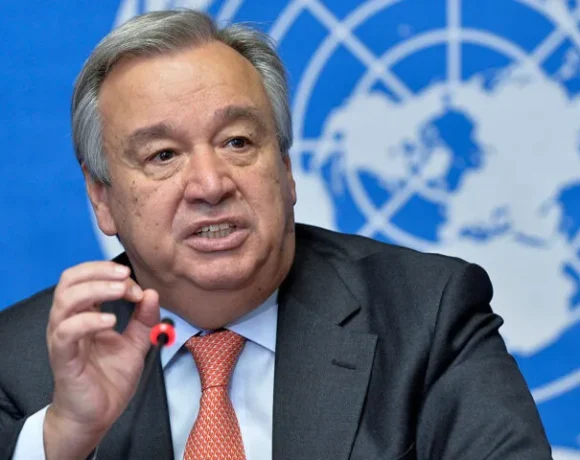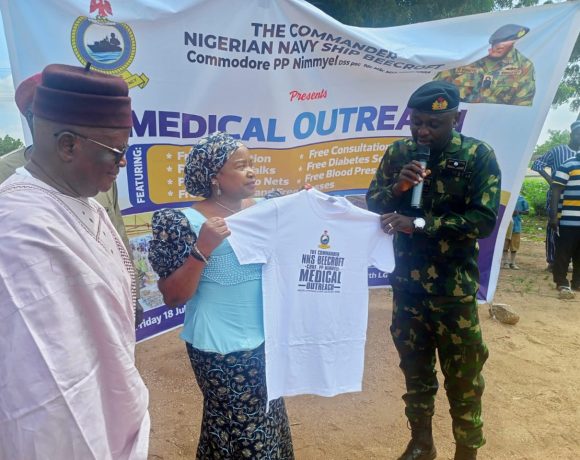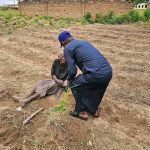Stakeholders meet to address underlining factors in Nigeria’s Plateau healthcare

Nigeria
The healthcare challenges faced in the Plateau State public health was met with insightful suggestions that will set a new record for the state to compete with world best practices when implementated.
This was gathered on Friday when stakeholders concluded a two-days workshop tagged the “11th Plateau State Council on Health”, championed by the Commissioner for Health, Dr. Nicholas Ba’amlong.
Stakeholders at the gathering witnessed government officials, health professionals, development partners, and community representatives, our correspondent reports.
Reading a communiqué at the end of the workshop, Ba’amlong informed that the gaps faced in the sector such as long waits at public hospitals, shortages of drugs, inadequate manpower, and the silence that surrounds mental health, will all be a thing of the past.
The Commissioner recognized the Council as the State’s highest policy-making platform for the health sector, a space where stakeholders “pause, reflect, and reimagine a healthier Plateau.”
The significance of this year’s meeting, themed “Repositioning Plateau State Health Systems Towards Achieving Universal Health Coverage,” went beyond strategy. It was about rebuilding trust between the system and the people it serves.
Take, for instance, the story of Hauwa, a young mother from Shendam. Like many others, she has lost count of the times she had to travel long distances to Jos just to access specialist care for her child’s recurring seizures.
“Sometimes, when I get to the hospital, there are no doctors available. Other times, I am told to buy drugs outside,” she recounted with frustration. For Hauwa, the Council’s resolution to recruit more healthcare workers and improve remuneration could mean fewer journeys, and more timely care.
One of the major policy highlights, the Commissioner disclosed, was the domestication of the 2023 Mental Health Act, which decriminalizes suicide and integrates mental health into Primary healthcare.
For Plateau’s growing number of young people silently struggling with depression, drug abuse, and stigma, this resolution represents a lifeline.
The planned establishment of the Plateau State Agency for Substance Abuse Prevention, Treatment, and Mental Health Services (PLASAPTAM) also signals a shift from neglect to intentional care.
Stakeholders did not shy away from the State’s public health emergencies either. The upgrading of the Public Health Emergency Operation Centre (PHEOC) laboratory was endorsed, a step that experts say will strengthen Plateau’s ability to respond to disease outbreaks quickly and effectively.
The Council also called for an end to open defecation by supporting policy enactments that promote sanitation and hygiene. For rural families in the State, where open defecation remains a public health concern, this decision could mark a turning point in the fight against waterborne diseases.
Private healthcare providers, too, came under scrutiny. The Council resolved that all private hospitals must register with Local Government Authorities, submit monthly health data through the State’s Health Management Information System (HMIS), and cooperate with supervision and training organized by the Ministry.
Non-compliance will attract sanctions. For communities, this means stronger accountability and better planning based on accurate health data.
Beyond policies and resolutions, the Council acknowledged a pressing reality; the State’s population is growing, and so must its health workforce. The approval for the employment of more health personnel across different cadres speaks directly to this. “We cannot continue to expect the same number of doctors and nurses to serve an expanding population,” Dr. Ba’amlong stressed.
Governor Caleb Mutfwang, who formally opened the Council, reaffirmed his administration’s commitment to strengthening the State’s healthcare system.
He emphasized that universal health coverage is not a slogan but a priority. “Our people deserve access to quality healthcare wherever they live, in the city or at the grassroots,” he said.
For many Plateau residents, the test will be in the follow-through. Resolutions and communiqués are important, but their true worth lies in the transformation of daily healthcare experiences.
The mother in Shendam who needs a doctor close by, the farmer in Pankshin who requires affordable drugs, and the youth in Jos fighting addiction all represent the faces behind the policies.
The 11th Council on Health may have ended, but its echoes linger. It is now up to the State government, partners, and citizens to ensure that the commitments made during the event are not forgotten, but are instead translated into a healthcare system that works for everyone.









